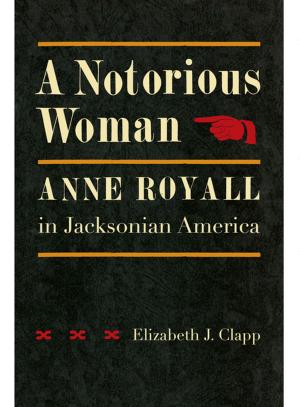Emily Davies
Collected Letters, 1861-1875
Fiction & Literature, Literary Theory & Criticism, Ancient & Classical| Author: | Jerome J. McGann, Herbert F. Tucker | ISBN: | 9780813923918 |
| Publisher: | University of Virginia Press | Publication: | March 3, 2004 |
| Imprint: | University of Virginia Press | Language: | English |
| Author: | Jerome J. McGann, Herbert F. Tucker |
| ISBN: | 9780813923918 |
| Publisher: | University of Virginia Press |
| Publication: | March 3, 2004 |
| Imprint: | University of Virginia Press |
| Language: | English |
Sarah Emily Davies (1830–1921) lived and crusaded during a time of profound change for education and women’s rights in England. At the time of her birth, women’s suffrage was scarcely open to discussion, and not one of England’s universities (there were four) admitted women. By the time of her death, not only had the number of universities grown to twelve, all of which were open to women; women had also begun to get the vote. Davies’s own activism in the women’s movement and in the social and educational reform movements of the time culminated in her founding of Girton College, Cambridge University, the first residential college of higher education for women.
Much of the social change that Davies witnessed—and helped to effect—was discussed, encouraged, and elicited through her personal correspondence. These letters, written to friends, allies, and potential supporters during the years of Davies’s greatest political and social activity, reveal the evolution of her skill and sophistication as an activist. They also show the development of women’s suffrage, education, and journalism movements from a group of loosely affiliated like-minded friends to an astute and organized political network of reformers. In these letters–most of which have never been published—we see Davies struggle to understand and theorize about the role of women, cajole and encourage potential supporters, explore complexities of various reform movements, and demonstrate her formidable attention to detail in inventing and constructing an imaginable new institution. Her intensely engaged life placed Davies at the very heart of the events that transformed her era.
Sarah Emily Davies (1830–1921) lived and crusaded during a time of profound change for education and women’s rights in England. At the time of her birth, women’s suffrage was scarcely open to discussion, and not one of England’s universities (there were four) admitted women. By the time of her death, not only had the number of universities grown to twelve, all of which were open to women; women had also begun to get the vote. Davies’s own activism in the women’s movement and in the social and educational reform movements of the time culminated in her founding of Girton College, Cambridge University, the first residential college of higher education for women.
Much of the social change that Davies witnessed—and helped to effect—was discussed, encouraged, and elicited through her personal correspondence. These letters, written to friends, allies, and potential supporters during the years of Davies’s greatest political and social activity, reveal the evolution of her skill and sophistication as an activist. They also show the development of women’s suffrage, education, and journalism movements from a group of loosely affiliated like-minded friends to an astute and organized political network of reformers. In these letters–most of which have never been published—we see Davies struggle to understand and theorize about the role of women, cajole and encourage potential supporters, explore complexities of various reform movements, and demonstrate her formidable attention to detail in inventing and constructing an imaginable new institution. Her intensely engaged life placed Davies at the very heart of the events that transformed her era.















